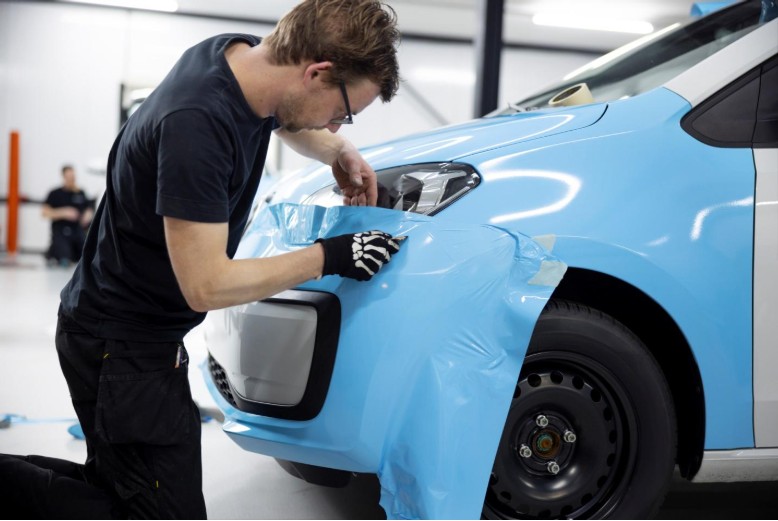Automotive Paint Protection Film (PPF) is a high-grade, transparent polyurethane film applied to a vehicle’s painted surfaces. Designed to safeguard against scratches, rock chips, stains, and UV damage, PPF has become a premium solution for car owners who want to preserve both the aesthetics and longevity of their vehicles. Beyond its protective qualities, one of the most debated topics is whether PPF contributes to improving the resale value of a car. In fact, automotive PPF film not only helps maintain the original paint but also gives buyers confidence that the vehicle has been well cared for, making it a smart investment for long-term protection and higher market appeal.
How Paint Protection Film Enhances Vehicle Appearance
A vehicle’s appearance plays a critical role in determining resale price. Cars with faded, chipped, or scratched paint often experience significant depreciation. By acting as a shield against road debris, bug splatter, harsh weather conditions, and chemical stains, PPF ensures the original factory paint remains intact. Since buyers perceive a well-maintained exterior as a sign of careful ownership, PPF can directly influence their willingness to pay a premium price.
Preserving Gloss and Factory Finish
Unlike waxing or ceramic coatings, PPF provides a physical barrier that not only prevents surface damage but also maintains the deep gloss of the paintwork. A flawless finish communicates quality and increases buyer confidence. Vehicles that appear nearly new after years of use naturally command higher resale offers.
The Financial Impact of PPF on Resale Value
Reduced Reconditioning Costs
Dealers and private buyers often factor in the cost of reconditioning when evaluating used vehicles. If a car requires paint correction or refinishing, its trade-in value drops significantly. A car protected with PPF typically requires little to no exterior reconditioning, making it more attractive in the resale market.
Higher Buyer Willingness
Luxury and performance car buyers are especially aware of PPF benefits. A vehicle advertised with professionally installed PPF is often seen as better maintained than similar models without protection. This perception can translate into thousands of dollars in additional resale value, especially for premium brands such as BMW, Mercedes-Benz, Tesla, and Porsche.
Long-Term Benefits of PPF Investment
Protection Against Environmental Damage
From acid rain to bird droppings, environmental contaminants degrade automotive paint over time. PPF resists these threats, preventing permanent etching and discoloration. The long-term protection ensures that resale buyers receive a vehicle with minimal cosmetic flaws.
UV Resistance and Color Retention
Constant exposure to sunlight leads to fading and oxidation. High-quality PPF includes UV inhibitors that prevent yellowing of the film and protect the paint underneath. As a result, cars maintain their original color vibrancy for years, which is a strong selling point in the resale market.
Factors That Maximize Resale Value with PPF
Professional Installation Matters
Improperly applied PPF can peel, bubble, or distort the paint’s appearance, negatively affecting resale value. Certified installation using premium-grade film is essential to achieve a seamless look that enhances, rather than detracts from, the car’s exterior.
Full Coverage vs. Partial Coverage
While partial coverage (hood, bumpers, mirrors) provides protection in high-impact zones, full-body coverage delivers the best resale advantage. Buyers are more likely to pay extra for a car that has consistent protection across all painted surfaces, ensuring a uniform finish.
PPF as a Resale Value Booster
Automotive Paint Protection Film is more than just a cosmetic accessory—it is a long-term investment that safeguards a vehicle’s paint, reduces depreciation, and increases buyer confidence. By maintaining showroom-quality condition and minimizing reconditioning costs, PPF significantly improves resale value. For owners of luxury, sports, or even daily-use vehicles, PPF delivers measurable financial benefits when it comes time to sell or trade in the car.




